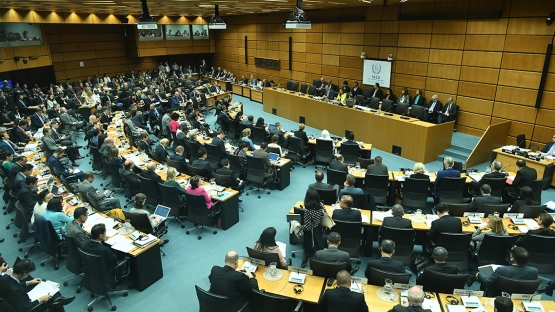Iran needs to cooperate with the IAEA fully and in a timely fashion, IAEA Acting Director General Cornel Feruta told the Agency’s Board of Governors today. Mr Feruta, who held talks with senior Iranian officials in Tehran on Sunday, said: “It is important to advance our interactions and, therefore, I also stressed the need for Iran to respond promptly to Agency questions related to the completeness of Iran’s safeguards declarations.” In his opening statement to a regular session of the 35-nation Board, he added: “The Agency will continue its efforts and will remain actively engaged. Time is of the essence.”
Mr Feruta also updated the Board on the application of safeguards in North Korea. He called on the country, also referred to as the Democratic People’s Republic of Korea (DPRK), to comply fully with its obligations under relevant United Nations Security Council resolutions, to cooperate promptly with the IAEA and to resolve all outstanding issues.
“As detailed in my report on the application of safeguards in the DPRK, some of the country’s nuclear facilities appear not to be operating, while activities at some other facilities have continued or developed further,” Mr Feruta said. “The DPRK’s nuclear activities remain a cause for serious concern. The continuation of that programme is a clear violation of relevant UN Security Council resolutions and is deeply regrettable.”
In his remarks, Mr Feruta, who was named Acting Director General following the death of Director General Yukiya Amano in July, provided an update on developments in various areas of the Agency’s work since the last regular Board meeting three months ago.





